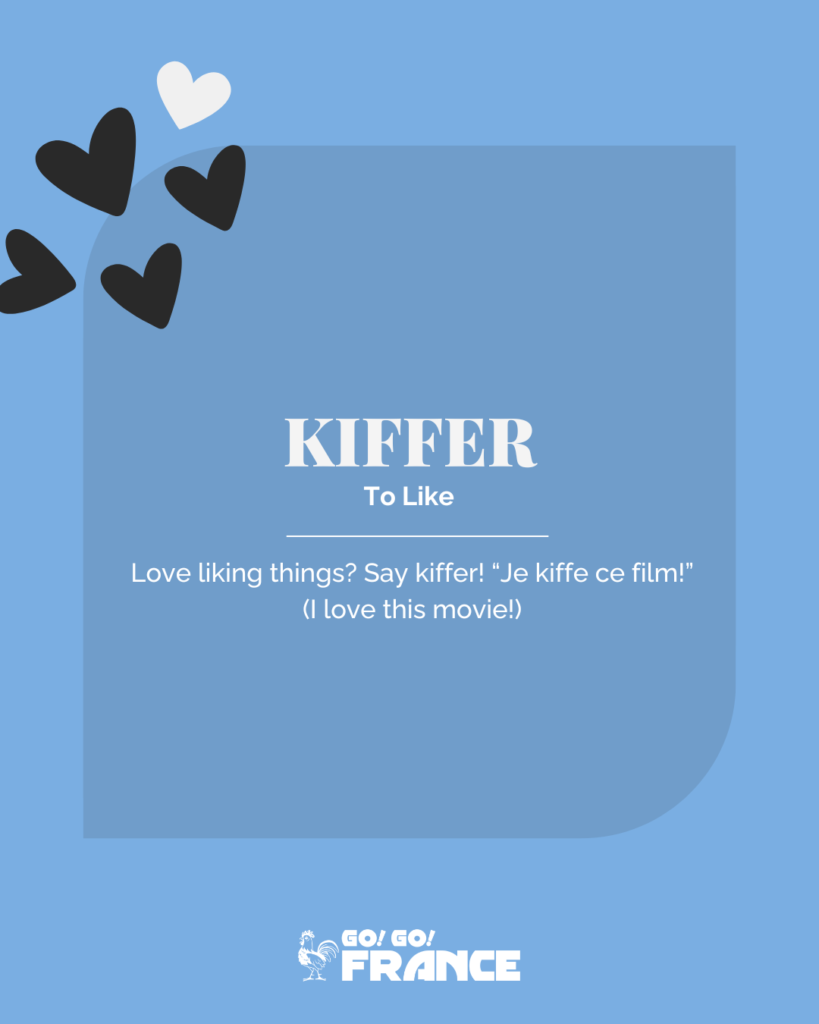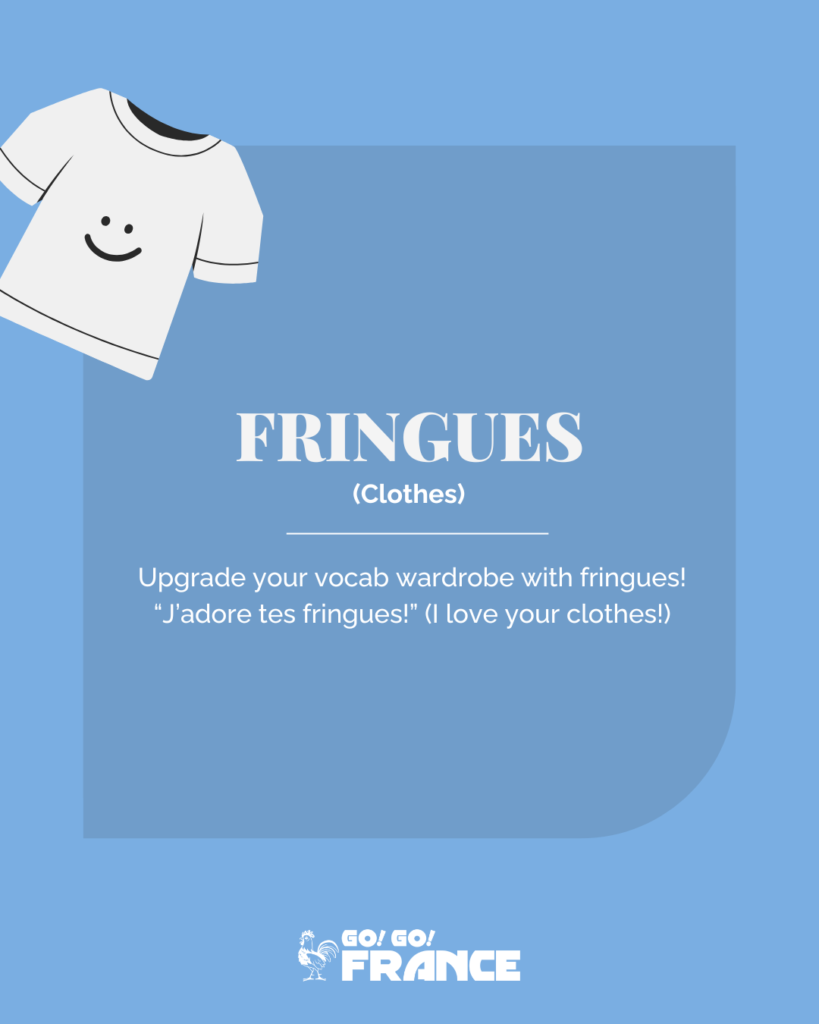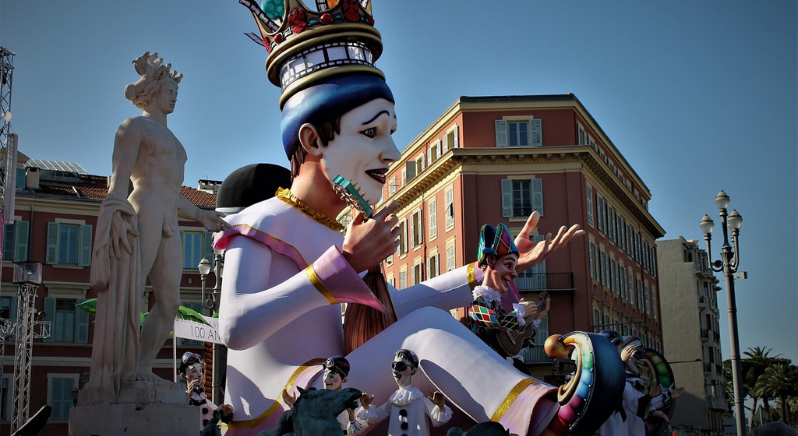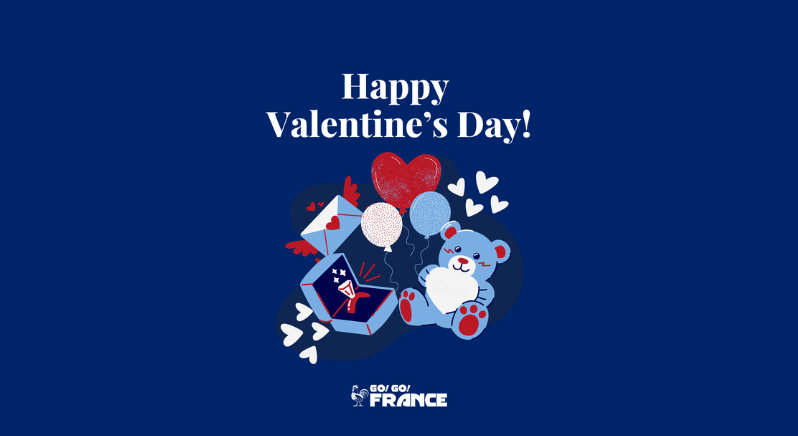French slang, often termed as “l’argot” is not just used by the youth but is peppered throughout everyday conversations among people of all ages.
Let’s dive into the world of French slang and explore its applications in everyday life in France.
What is verlan?
French slang, much like its counterparts in other languages, has evolved from various sources and has been shaped by social, cultural, and historical influences.
But much of the slang vocabulary used in daily French comes from verlan, a form of wordplay unique to the French language that involves rearranging syllables.
How does verlan work in French?
To form verlan in French, you often just need to swap the order of the syllables.
Here are some examples:
| Standard French word | Slang French word | Meaning |
| Merci | Cimer | Thank you |
| Fou | Ouf | Crazy |
| Frère | Reuf | Brother |
| Louche | Chelou | Weird |
| Bizarre | Zarbi | Strange |

Common French slang words you’ll hear French people use a lot
- Bouquin (Book)
A bouquin is a much cooler way to talk about a book.
Tu as lu ce bouquin? (Have you read this book?) - Bosser (To work)
Forget travailler, when in France, you bosser!
Je dois bosser demain. (I have to work tomorrow.) - Fringues (Clothes)
Upgrade your vocab wardrobe with fringues!
J’adore tes fringues! (I love your clothes!) - Mec (Guy)
Referring to a guy? Mec is your go-to word.
Ce mec est sympa. (This guy is nice.) - Nana (Girl)
And of course, for girls, say nana.
Cette nana est géniale. (This girl is awesome.) - Ouais (Yeah)
Oui is yes, but ouais is yeah – casual and cool.
Ouais, ça marche. (Yeah, that works.) - Pote (Friend)
Your amis are great, but potes are slang-level buddies.
C’est un de mes potes. (He’s one of my friends.) - Thune (Money)
Cash in your argent for thune in your slang wallet.
Je n’ai pas de thune. (I have no money.) - Baraque (House)
Ditch maison for baraque when talking about houses informally.
Ils ont une grande baraque. (They have a big house.) - Kiffer (To like)
Love liking things? Say kiffer!
Je kiffe ce film! (I love this movie!)

French slang and the Internet
The Internet, social media platforms, and messaging apps have become hotbeds for the creation and spread of new slang terms among the French, especially the younger generation.
For example, MDR (mort de rire) is akin to LOL in English, expressing laughter. And there are plenty more:
- MDR: mort de rire (dying of laughter) is the French equivalent of LOL
- PTDR: pété de rire (bursting with laughter) is even stronger than MDR
- TKT: t’inquiète (don’t worry)
- A+: à plus tard (see you later)
- JPP: j’en peux plus (I can’t take it anymore)
These abbreviations have made their way into spoken language. You won’t be surprised to hear native French speakers saying MDR or TKT in a natural conversation.
Want delve deeper into the nuances of the French language? Visit our Go! Go! France blog





